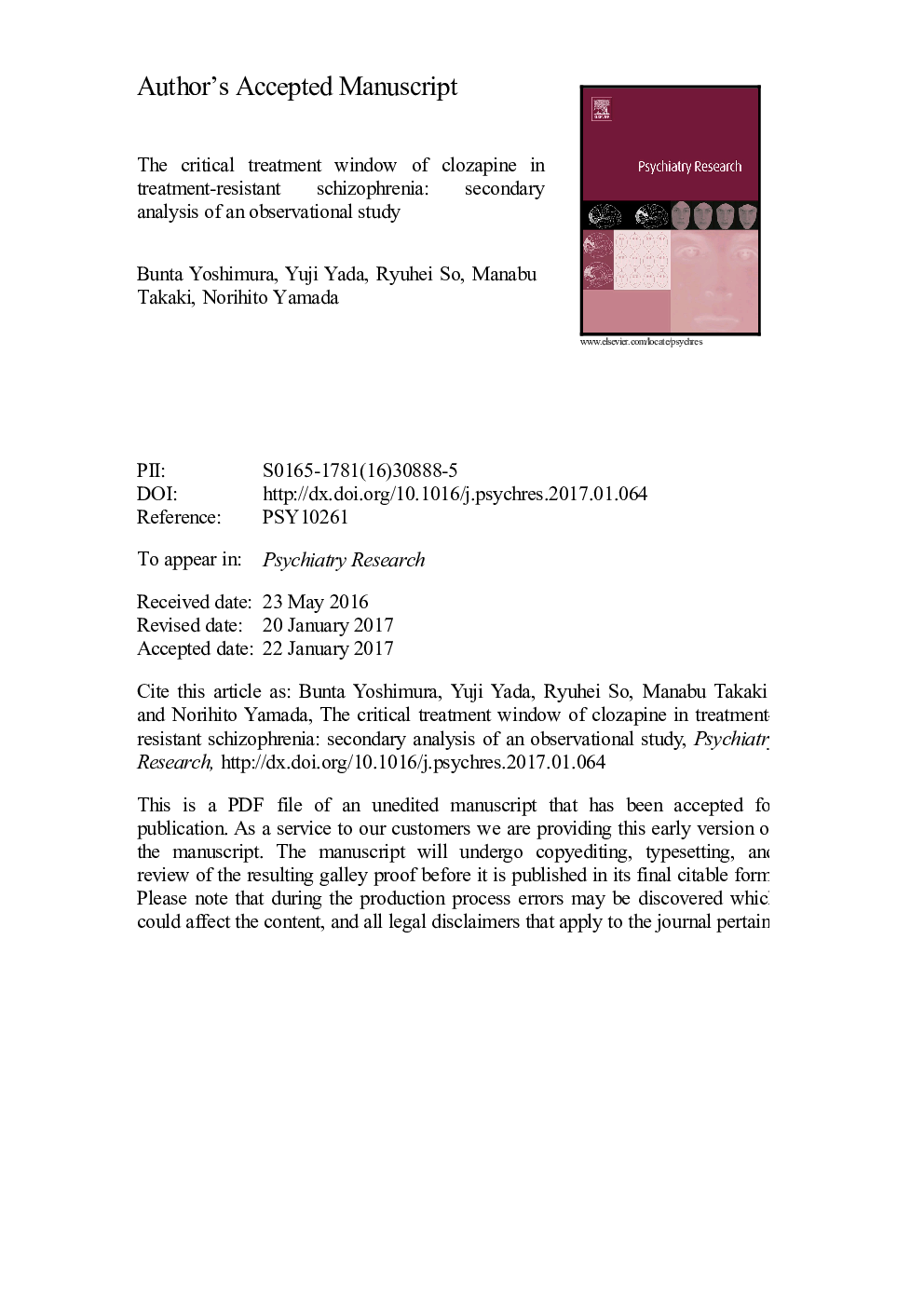| Article ID | Journal | Published Year | Pages | File Type |
|---|---|---|---|---|
| 4933337 | Psychiatry Research | 2017 | 29 Pages |
Abstract
Previous studies have suggested that a delay in initiating clozapine is one of the predictors of outcomes in treatment-resistant schizophrenia (TRS). However, whether there is a critical treatment window of clozapine in TRS and the duration of that window remain unclear. We conducted a secondary analysis of a previously published observational study using a retrospective chart review of 105 patients with TRS who were treated with clozapine. We included 90 patients who remained on clozapine for at least 3 months. The delay in initiating clozapine was an independent contributor to symptomatic improvement based on treatment with clozapine by multiple linear regression analysis. A receiver operating characteristic curve analysis (area under the curve: 0.78) confirmed 2.8 years was the best predictive cut-off value of delay in initiating clozapine for responses in patients treated with clozapine (sensitivity: 0.66, specificity: 0.84). In patients with a delay in initiating clozapine of â¤2.8 years and a delay in initiating clozapine of >2.8 years, the response rates were 81.6% and 30.8% (risk ratio=2.65; 95% confidence interval, 1.80, 3.63), respectively. Clinicians should reduce the delay in initiating clozapine to less than 3 years to improve symptomatic outcomes in TRS and to prevent clozapine-resistant schizophrenia.
Related Topics
Life Sciences
Neuroscience
Biological Psychiatry
Authors
Bunta Yoshimura, Yuji Yada, Ryuhei So, Manabu Takaki, Norihito Yamada,
